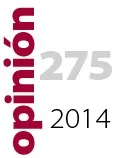Avramopoulos: a new face for an already set migratory agenda

Elena Sánchez-Montijano, Research Fellow, CIDOB
29 October 2014 / Opinión CIDOB, nº. 275
The creation of a migration portfolio in the new European Commission framework and the choice of Dimitris Avramopoulos to lead it reflect Europe’s migration priorities. In addition to a clear move in recent years towards border control, a commitment to highly-qualified migrants and the internal movement of European nationals, the European Union has also been obliged to confront irregular immigration and the significant growth in anti-immigration discourse. It is, no doubt, the convergence of these factors that has brought about the appointment of the Greek former defence secretary as Commissioner for Migration and Home Affairs.
The past 7th of October marked one year since the Lampedusa tragedy in which 332 people died attempting to reach the coasts of Europe. There are many others, but this is the best-known of the ongoing situations the EU has to deal with in relation to the difficulty of managing the arrival of migrants via the Mediterranean. In large part, this difficulty arises from the fact that the factors that lead tens of thousands of people to risk their lives to reach Europe are slipping out of the hands of EU leaders: a conjunction of armed conflicts, humanitarian crises and the continual poverty in which the migrants find themselves. A figure of more than 3000 dead in the Mediterranean in the first nine months of 2014, according to the International Organisation of Migration (IOM), means that EU citizens and political representatives cannot remain indifferent.
With varying degrees of success, repeated attempts have been made to answer the challenge of irregular immigration. Of the few that have worked, Greece’s is a good example, where, according to data from Frontex, irregular immigration fell by more than 50% in the space of two years (from 57,000 people intercepted in 2011 to 24,800 in 2013). In large part, this fall was due to the European Border Agency’s economic and human resources and agreements made with Turkish authorities over field surveillance and information exchange. But not all the borders of the Mediterranean have changed in the same way and other routes have acquired more importance. In the past two years, the use of the central Mediterranean route that leaves from Libya and Tunisia has continued to grow. Between January and September 2014 as many as 134,272 immigrants were detected there, many more than the 31,000 in the same period of last year.
Along with the handling of irregular immigration, the new Greek Commissioner will have to confront the anti-immigration discourses that are establishing themselves with ever more traction in both member states and the EU itself. National support for parties such as UKIP, the Danish People's Party and the Front National in France has reached more than 25%, and in the recent European elections they were the groups that received most votes in their respective countries. Among other issues, they all share a total rejection of immigration. In this setting, the EU has two options: to fight against the growing discourse of intolerance towards immigrants; or to allow the spread of the contagion effect and, therefore, incorporate those worries and visions into the EU acquis.
The profile and track record of the new Commissioner, Mr Avramopoulos, appears to show quite clearly what the new Commission's answer is. In Greece, under the mandate of the former defence minister, of the thousands of immigrants who were detained based on their facial features, only 6% were without papers. New Democracy, the party to which he belongs, has exploited the alarmist discourses of a "firm hand" against immigrants in order to further their electoral aims, seeking to capture the anti-immigration vote from the xenophobic group Golden Dawn. Nevertheless, there are some positives that should be placed on the other side of the scales. The first is that the creation of a migration portfolio in itself brings the migratory phenomenon to the agenda; immigration is an important subject for the EU and a definite response must be given. The second is that the new Commissioner is Mediterranean and has experience working directly with immigration in Greece. The new Commission will, no doubt, want to take charge of handling irregular immigration and its most tragic consequences, as well as the joint attention given to external borders.
The new mandate of the President of the Commission, Jean-Claude Juncker, set out some priorities in its "mission letter" to the new Commissioner on the 10th of September. The assignment seemed clear: "We need to show that the EU can offer both a compelling case to attract global talent, and a vision of how to robustly address the challenge of irregular migration." The new Commissioner took up the baton in his appearance before the European Parliament on the 30th of September, when he defended his role as new Commissioner for Migration and Home Affairs. In his statement he affirmed that, "A precondition for no internal border control, is to have efficient external border control". Within this framework there would be three future lines of work in the EU: 1) "to cope in an efficient manner with the migratory pressure at our borders", even by creating a "European Border Guard"; 2) improving legal migration pathways, and attracting highly-qualified workers with "specific skills and talents to the European labour market"; and 3) allowing "people to travel without internal border controls".
The choice of Avramopolous has filled those who reject a security-based response to the migratory phenomenon with concern. This is because within his responsibilities—though not exclusively his—are priorities such as the management of an ever more diverse Europe, efficient internal mobility for third country nationals as well as Europeans, and the question of how to deal with anti-immigration discourses based on hate. All of these subjects should have the same importance as those mentioned above. The question remains whether the new Commission will face up to them.